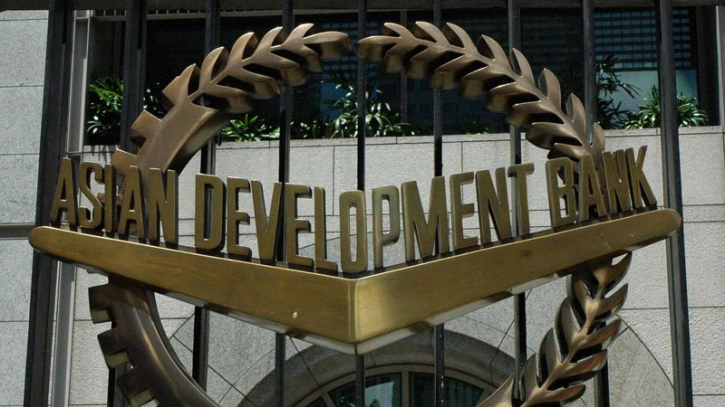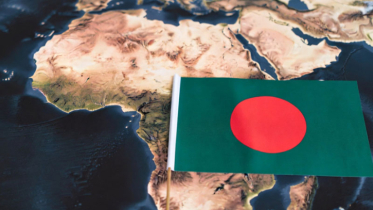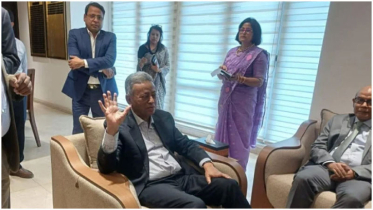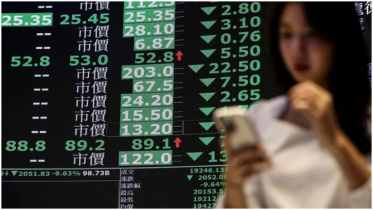ADB approves $659mn loan for Pakistan

Pakistan has secured an expensive $300 million loan at market rates from the Asian Development Bank (ADB) to improve tax compliance, showing a glaring contrast between the government’s actions and words.
The loan has not been obtained for any development purposes; rather the proceeds would be utilised for budget financing purposes in the name of bringing reforms in Pakistan’s revenue and expenditure frameworks.
The Manila-based lending agency on Wednesday approved a $659 million financing package for Pakistan under three different loans. These include $300 million for improving domestic resource mobilisation; $275 million for rehabilitating schools damaged by the devastating August 2022 floods; and $80 million for enhancing agricultural productivity to improve food security, according to an announcement by the ADB on Wednesday.
The ADB announcement came as a World Bank’s Debt Management and Sustainability Mission met with the Pakistani Finance Minister Shamshad Akhtar to review the debt management of the country.
Last week, Dr Akhtar announced that Pakistan’s debt burden has become “unsustainable” -- a notion to which World Bank’s Vice President for South Asia Martin Raiser did not agree. In an interview, Raiser described the country’s debt as “sustainable”.
The ADB is already paying salaries of half of the staff of Pakistan’s Debt Management Office, which should ideally be paid by the finance ministry.
Despite pronouncing the debt unsustainable, Pakistan has contracted one of the expensive loans by the multilateral lenders, which mostly give financing at concessional rates.
The $300 million loan will have a 15-year term, including a grace period of three years; an interest rate determined in accordance with ADB’s Flexible Loan Product; a commitment charge of 0.15% per year; and such other terms and conditions set forth in the loan agreement, according to the ADB documents.
The flexible loan product is a market-based floating rate lending instrument and at current market prices it would cost Pakistan over 6% interest –a cost that is almost three-time higher than the concessional lending by the World Bank and the ADB. However, the interest rates are expected to go down in the international markets, which may also reduce the rates of this loan.
The 15-year tenor of the ADB loan is also relatively shorter than its previous financing to Pakistan.
Despite plunging deeper into the debt trap, Pakistani authorities are taking loans for a purpose that only needs a strong will. Earlier, the Pakistan Tehreek-e-Insaf (PTI) government took a $400 million loan from the World Bank for reforms in the Federal Board of Revenue.
The loan is taken in the name of reducing the tax gap to 20% of the potential tax collection. The government and the ADB have used a three-year-old base to showcase the performance and set targets.
Similarly, the loan is being taken to reduce tax payment time compared to the 2020 base year, a task that needs efficiency not foreign money. Under other goals, Pakistan will reduce budget deficit, consolidate the single treasury account mechanism and very nominally improve foreign direct investment and domestic savings ratio – the goals that again do not need foreign funding.
Pakistan’s tax revenue performance is comparatively weak with tax collections as a share of GDP declining from 10.8% in FY2018 to 10.1% in FY2022, falling short of comparator countries in the region whose tax collection averaged between 14% and 17% of GDP, according to the ADB.
The ADB stated that several factors contribute to this situation, including the complex tax system, a high-level of informality in the economy, and weak tax administration, all of which result in a low tax compliance rate.
However, none of these factors need foreign loans to be fixed. The official handout stated that the $300 million policy-based loan will support the initiative’s first subprogram, which focuses on laying the foundation for reforms to policies, laws, and institutional capacity that will improve domestic resource mobilization and utilization.
The programme is helping to transform tax administration, public expenditure management, and other institutional structures to strengthen resource mobilization including non-debt resources such as private investment and savings, said the regional lender.
Read more IMF sees $8b dip in debt in two years
“This significant new wave of financing will help Pakistan recover from the impacts of last year’s cost-of-living crisis and super-floods and return to the path of long-term development that is sustainable and inclusive,” said ADB Director General for Central and West Asia Yevgeniy Zhukov.
“This multifaceted approach is part of ADB’s strategic engagement in Pakistan and cohesively deploys our program lending and project investments to enhance support for Pakistan’s efforts to improve its economic situation and enhance the quality of life for its people, " said the DG.
The ongoing Sindh Secondary Education Improvement Project will receive additional financing—a $275 million emergency assistance loan that is part of ADB’s $1.5 billion pledge of support for Pakistan’s recovery from the devastating 2022 floods, according to the ADB .
The additional financing will help reconstruct up to 1,600 flood-damaged schools using disaster- and climate-resilient and gender-responsive designs. This will boost resilience and inclusivity in the education system in Pakistan, helping recovery of learning and earning losses especially for girls in the most disadvantaged and vulnerable districts of Sindh.
A concessional loan of $80 million for the Khyber Pakhtunkhwa Food Security Support Project, which is also part of ADB’s $1.5 billion pledge of support for Pakistan’s recovery from the 2022 floods, will help address climate vulnerabilities, enhance food security, and boost the livelihoods of rural farm households in the most flood-damaged districts in the province, said the ADB.
The project will provide essential agriculture inputs and training to smallholder farmers, including women, and improve household nutrition and women’s empowerment. It will also enhance digital access and availability, especially with regard to market opportunities and climate information.
.png)




